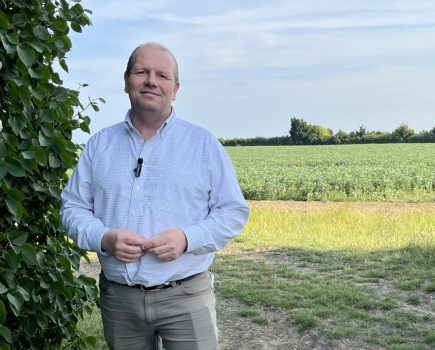
The usual form for farmer columnists is not to mention the weather because of the simple fact that in the time lag between the words being written and subsequently being read, you can’t be sure if things might change significantly. You can look a proper chump talking about ‘this worrying drought’ to farmers fed up with constant rain.
Similarly, grain markets should be treated with caution in these columns in case prices either rally or crash just after putting pen to paper. One doesn’t want to appear hopelessly out of touch or to be crowing about getting £120 for wheat when the spot price is soaring towards the £150. The truth is we live in volatile times where there seems no guessing what the future holds.
And now, it would seem, there might be another ‘no-go’ area for the farmer columnist where the subject-matter is so prone to rapid change you can’t be sure that what you say at the time of writing will still hold true a few days later. I am of course referring to pesticide choice.
I could tell you I’m ordering up my glyphosate or diquat in readiness to desiccate my oilseed rape. I’ve been doing that in late June or early July for the past thirty years. But bizarrely, as I write, I can’t be sure that glyphosate will still be available by the time this gets read.
At the moment we have a political standoff in Brussels between the Commission and the Council of ministers with no one wanting to give glyphosate the reauthorisation it will need by 1 July.
Hopefully by the time you read this, common sense will have prevailed and a vital tool in our crop production toolbox will be secured for future use. But unfortunately the words ‘common sense’ and politicians don’t often appear in the same sentence. There’s also the little matter of panic buying of glyphosate that seems to be going on for fear it might disappear. You worry that some farmers may be filling the bath with the stuff.
And just to add to my problems here. As I write, the UK is a member of the EU and our chemicals are subject to EU regulation. Lord only knows what the situation might be by the time you rip the plastic cover off of your latest edition of CPM. But as I whinge on about the challenge of writing articles at a time of seemingly unpredictable change, I’m acutely aware that back out in the real world of farming, we have real challenges trying to run farm businesses when we can’t be sure what lies just around the corner.
Speed dating
It’s that time of year when gangs of farmers can be found on the prowl eyeing up what might take their fancy for next year. I always imagine whizzing round cereal variety plots must be very similar to speed dating, not that I’ve ever done the latter, you understand. In both disciplines the hunter gives a new addition, one he’s never clapped eyes on before, the quick once over then asks if it’s available to have in a seedbed next autumn to give it a proper going over.
Over the years, I’ve had some memorable relationships with various varieties I’ve met in variety plots. The lovely Avalon from the 1980s who was always more attractive to me than filthy dirty Slejpner. I’ll admit that in the past I’ve been quite attracted to the likes of Norman and Hereward but at the end of the day I was always happier with Beaver. Having said that, I have to note this year that I seem to have settled with a bearded variety called Skyfall.
And now we have a variety called Cougar available. It’s a timely reminder to younger farmers of the danger of having your head turned by the cosmetic looks of a variety before you’ve really get to know them. Beware of those that have fungicide smeared all over their faces to cover their true complexion.





